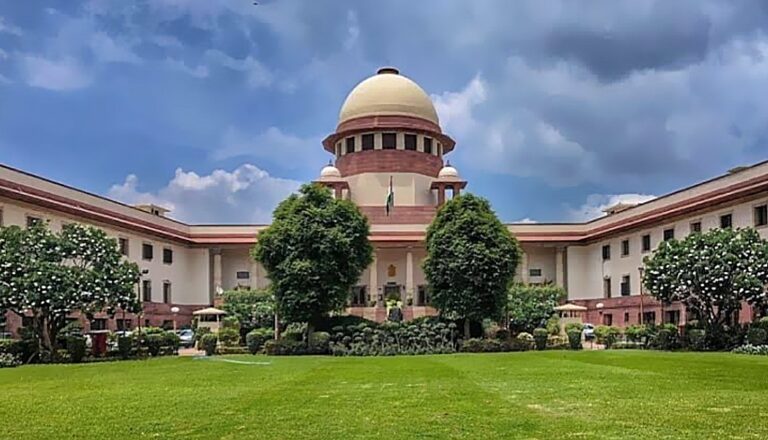This Supreme Court judgment reaffirms the strict interpretation of Section 271AAA(2), making it clear that merely paying taxes voluntarily does not exempt an assessee from penalties if undisclosed income is admitted only at the assessment stage.
The Supreme Court of India has ruled that the penalty exception under Section 271AAA(2) of the Income Tax Act, 1961 is not applicable if undisclosed income is declared only during assessment proceedings rather than at the time of search, even if the taxes are voluntarily paid. This landmark decision was delivered while adjudicating a civil appeal filed by K. Krishnamurthy against the Karnataka High Court’s dismissal of his appeal under Section 260A of the Act.
Case Background
Krishnamurthy, along with Surendra Reddy and Hashim Moosa, entered into a Memorandum of Understanding (MoU) on January 19, 2009, for procuring land. The MoU did not involve any monetary transaction apart from ₹10,00,000 paid to the facilitators for arranging the transfer of land to Hashim Moosa and his nominees.
However, during a search and seizure operation conducted on November 25, 2010, undisclosed income amounting to ₹2,27,65,580 was revealed. Following the issuance of a notice, Krishnamurthy filed a belated return for the Previous Year (P.Y.) 2010-11, relevant to the Assessment Year (A.Y.) 2011-12, declaring an additional income of ₹2,49,90,000.
Also Read: New Income Tax Bill 2025: Key Details on Features and Changes in Provisions Impacting the Taxpayers
Penalty Imposed by Assessing Officer
The Assessing Officer (AO) assessed a total income of ₹4,78,02,616 and imposed a penalty of 10% on the entire returned income, amounting to ₹47,80,261. The AO cited non-compliance with the conditions of Section 271AAA(2) as the reason for the penalty.
Despite filing appeals before the Appellate Authority and the Karnataka High Court, Krishnamurthy faced rejection, leading to the present appeal before the Supreme Court.
Legal Arguments
Senior Counsel Sameer Abhyankar, representing the petitioner, argued that the penalty was imposed without properly determining whether the income qualified as ‘undisclosed’ under Section 271AAA(1). On the other hand, Raj Bahadur Yadav, representing the Revenue, cited the Delhi High Court’s decision in PCIT vs. Amul Gabrani (2024), emphasizing that the assessee must fulfill three conditions to claim penalty exemption:
- Admission of undisclosed income during the search.
- Explanation of the source of such income.
- Timely payment of taxes.
Also Read: ITAT deletes Section 69C Addition as allegations not substantiated with clear evidence
Supreme Court’s Verdict
The Division Bench, comprising Justice J.B. Pardiwala and Justice Manmohan, noted that Krishnamurthy disclosed only a portion of his income during the search, while ₹2,49,90,000 was revealed later during assessment proceedings. The Court clarified that the phrase “found in the course of search” has a broad scope and includes subsequent recoveries linked to the search.
Since the additional income was traced through sale deeds obtained due to the search, the Supreme Court ruled that it rightly fell under the category of undisclosed income. Consequently, the Court upheld the penalty of 10% imposed on ₹2,49,90,000, rejecting the appellant’s claim for relief.
Conclusion
This Supreme Court judgment reaffirms the strict interpretation of Section 271AAA(2), making it clear that merely paying taxes voluntarily does not exempt an assessee from penalties if undisclosed income is admitted only at the assessment stage. The ruling serves as a significant precedent for future tax litigation cases involving search and seizure operations.
For taxpayers, this highlights the importance of timely and full disclosure of undisclosed income during a search to avoid penalties under Section 271AAA.
Stay updated with the latest tax rulings and compliance guidelines to ensure hassle-free tax filings!
READ MORE
GST Registration Cannot Be Denied Based on State of Origin: Andhra Pradesh High Court
Madras High Court: Opportunity of Final Hearing under GST Granted on Payment of 10% Disputed Tax
Section 269SS Not Applicable to Brokers Acting as Agents or Facilitators: ITAT Chennai
